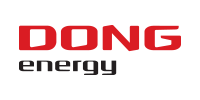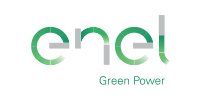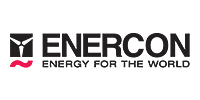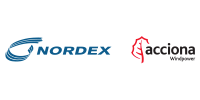|
- |
Price finding in disruptive macro-economic conditions

|
Mathias Thamhain EAPC SUR, Argentina PRICE FINDING IN DISRUPTIVE MACRO-ECONOMIC CONDITIONS Abstract ID: 659 Poster code: PO.370a | Download poster:  PDF file (0.15 MB) |
Full paper not available PDF file (0.15 MB) |
Full paper not available |
Presenter's biography
Biographies are supplied directly by presenters at WindEurope 2016 and are published here uneditedEAPC founding partner and expert in the wind industry with a long track record in executive positions in leading companies and teaching at universities and companies in Europe and South America. Mathias has been country manager of wind turbine manufacturer REpower Systems in Spain and Portugal, and manager of wind turbine testing laboratory DEWI Spain.
He gained specific knowledge in the development and evaluation of wind projects, including structuring, risk assessment and negotiation of EPC contracts as well as in technological assessment of a wide range of turbines and components, including design, certification and accredited measurement, the establishment of a supply chain, and execution of turnkey projects.
He presented and taught various technical and commercial issues around renewable energy to a wide audience in several countries in Europe and South America both conferences and training issues.
Abstract
Price finding in disruptive macro-economic conditions
Introduction
The 2016 renewable energy tender in Argentina is placed in a disruptive macro-economic environment. After many years of market intervention and scarce (public) investment in new energy capacity on the one hand, and isolation of the country from international financial markets on the other, the new authorities face multiple challenges in their quest to deploy new capacity.
A strong pipeline of renewable energy projects promises a quick deployment of new capacity with high capacity factors and competitive capex and opex; particularly wind projects will make 60% of the whole capacity. Local and foreign investors consolidate their confidence in the Argentinian market as a whole and specifically in the energy sector.
Approach
Our research project analyses the process of price finding for wind energy projects both of governmental entities defining price targets and caps and private players positioning their bids in the tender process.
Main body of abstract
The renewable energy law 27.191 from October 2015 establishes a maximum price for renewable energy projects of 113 USD/MWh; the justification of this price cap is based on the equivalent value of fossil fuels displaced by renewable energy generation.
When launching the public tender for renewable energy PPA RenovAr, the government foresees establishing a second price cap. This cap will be established in the period of evaluation of the technical bid, prior to the evaluation of the economical bid. This second price cap is technology specific and rather related to the target of the government to limit long term cost exposure for electricity generation.
On the other hand, the investors are preparing their technical and economical bids based on a solid yield estimate and thorough cost analysis, in a context of high capacity factors and relatively straightforward capex and opex budgeting on the one hand and a complicated fiscal incentive structure and challenging definition of cost of capital on the other.
In fact, the cost of capital is the most important unknown in the equation. Until December of 2015, there was hardly any foreign investment in Argentina, and investment in infrastructure was mainly based on public funding. The new government has reverted this situation and started defining conditions which aim at attracting international investors, e.g. solving long term debt with holdout bond holders from Argentina’s 2005 debt restructuring. The successful issuing in April 2016 of new long term debt at 7,6% proves that the country has effectively returned to international debt markets.
The price finding takes place in a competitive environment. Most of the countries in Latin America opt for public tenders as an instrument to incentivize renewable energy development. Particularly, wind project have achieved PPA prices between 40 USD/MWh and 50 USD/MWh in 2016 in several markets in the region. In Argentina, wind projects with capacity factors around and above 50% are likely to define price leadership in the public tender.
The paper discusses the different aspects of the definition of the cost of generation and intends to isolate the different cost contributors between capex, opex, yield, fiscal costs and benefits and cost of capital.
Conclusion
The cost of capital is the most important contributor to cost of generation, in the specific context of Argentina that is redefining international investment 15 years after the default. The competitive environment that was established during the months of tender preparation has shaped the price definition of private investors.
Learning objectives
The paper describes the process of price finding in one of the last big wind markets. It aims at instructing investors in understanding the economic and technical context of the country which has a potential of 10 GW for renewable energy in the next decade.




Follow EWEA on: